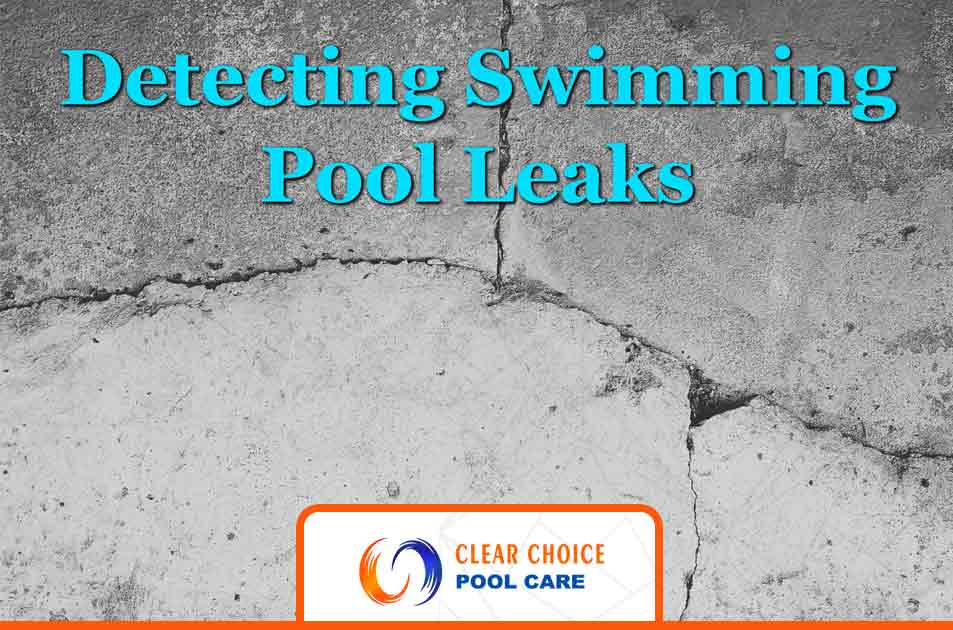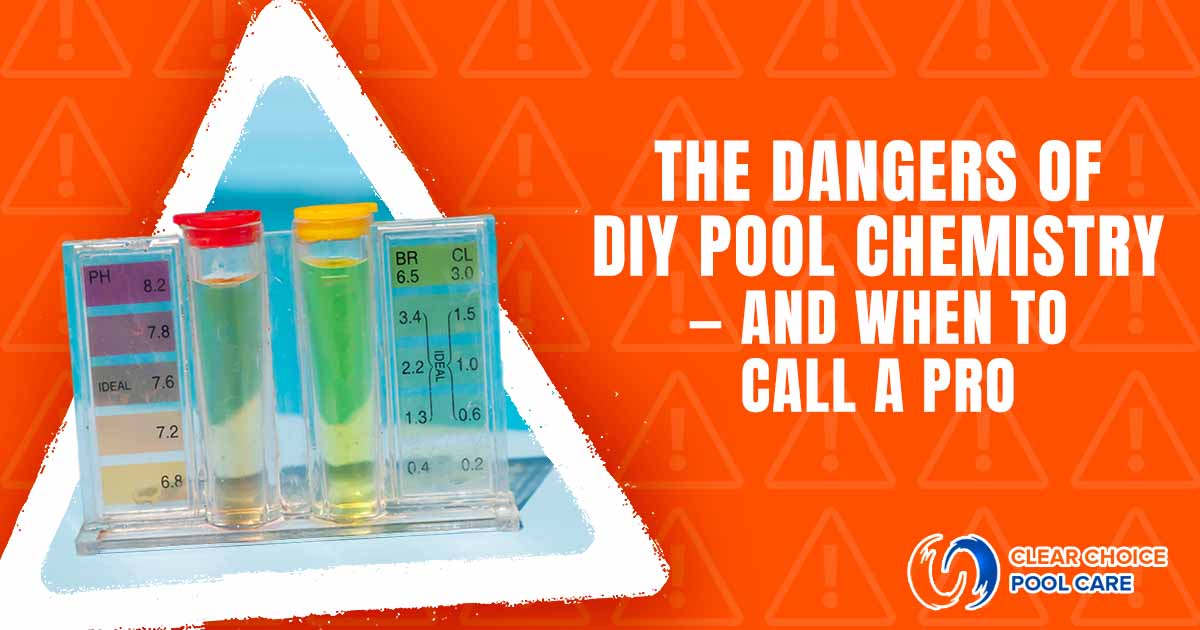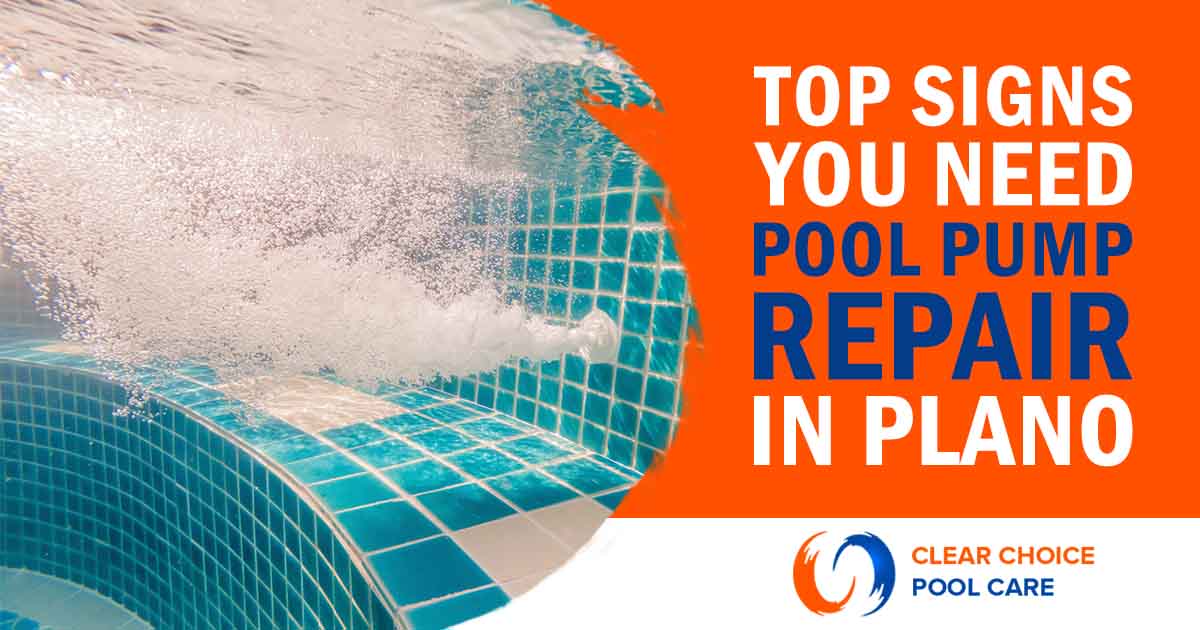Owning a pool means keeping an eye out for many different problems that can pop up at any moment. This includes pool leaks. Pool leaks can wreak havoc on your pool if they’re not detected soon enough. That’s why it’s important to know what to look for when detecting pool leaks. This could save you a lot of time and money.
Detecting Pool Leaks in an In-Ground Pool
When detecting pool leaks in an in-ground pool, it’s important to know that leaks can occur anywhere inside or outside your pool. Either way, you’re losing water and you need to find the source. Some of the places where water may be leaking include:
- Filter system
- Pump
- Heater chlorinator
- Cracked underground piping
If you think the piping underground is cracked, you’ll want to call professionals to look at the problem. The technicians at Clear Choice Pool Care can test the lines for possible cracks and determine whether there is a leak.
If you think the leak is coming from somewhere else, there are a couple of ways to try to pinpoint the problem.
Use the Bucket Method
This is an easy way to see if your pool is leaking. It’s only requires a bucket. Start by taking a 5-gallon bucket and putting it on the second step of your pool. Next, fill the bucket with enough water to match the pool’s water level. You’ll want to mark the level with duct tape on the inside of the bucket. This will help you determine whether water is coming out of your pool.
Turn off any pumps and wait 24 hours. When the 24 hours is over, compare the pool water level to the amount of water in the bucket. If both are lower but even, your water loss is due to evaporation. So, you have no leaks to worry about!
But, if the pool level is lower than the water level in the bucket, there’s a good chance you have a leak somewhere in your pool. Repeat the test, but leave the pump on this time. When you get the new results, see if the water level in the pool is greater when the water is moving under pressure. If you suspect that it is, the source of the leak may be in your pool’s plumbing.
Detecting Pool Leaks in an In-Ground and Above Ground Pool
Another way of detecting pool leaks whether you have an in-ground or above ground pool is to use the ink method. It’s a bit more involved than just leaving a bucket to look for leaks.
Use the Ink Method
For this method, you’re going to need:
- Goggles
- Snorkel
- Leak finder dye or red or dark food coloring
Before putting any dye or going in the pool, check the area around and the ground for any wetness. This can save time because it will let you know where the possible source of the leak. Once you have a general idea, put your goggles and snorkel in because it’s time to dive in.
Start by squirting dye in the water close to the wall. If the leak is nearby, the dye will move closer to the source of the leak. If you suspect the leak is coming more towards the bottom, try the dye test underwater. Look for how the water is moving to pinpoint the source.
Things to Consider when Detecting a Pool Leak
When you’re detecting a pool leak, you should understand that if your pool is leaking it doesn’t mean it’s happening 24/7. You should try to figure out if the pool is only leaking when certain equipment is on. This can help you determine if the pump or plumbing may be to blame.
If the pool is only leaking when the equipment is off, you may have a suction-side leak involving the pipes that bring water from the pool. You may notice air in the pump basket, or air bubbling out of the return lines. Use duct tape to mark water levels so you can see how much water is leaking.
Any of these types of problems are not always easy for people to determine. That’s why they often call a professional pool company, like Clear Choice Pool Care, to fix the problem.
Check the Equipment Pad
Look at the area around the filter, pump, heater, and valves. If you notice any moisture, there could be a leak somewhere there.
Check to See if the Water Stabilizes Anywhere
Close the skimmer valve and let the water level drop below the skimmer while running the pump on the main drain. If the water level still drops, you know there is a leak but that the skimmer is likely not to blame.
Call the Professionals When Detecting Pool Leaks
Detecting a pool leak is no easy business. It’s a time-consuming process that can get many people frustrated. That’s why they leave it to the professionals at Clear Choice Pool Care.
We can detect pool leaks and repair them for you. Whether the leak is big or small, our experienced technicians will determine the problem and give you an estimate to fix it.
While some pool leaks may appear suddenly, there are many times when leaks develop over time. That’s why it’s important to have weekly pool service. This can help to detect these leaks earlier rather than later when they are bigger and more expensive. We can set up weekly or biweekly service to help keep your pool in great shape.





